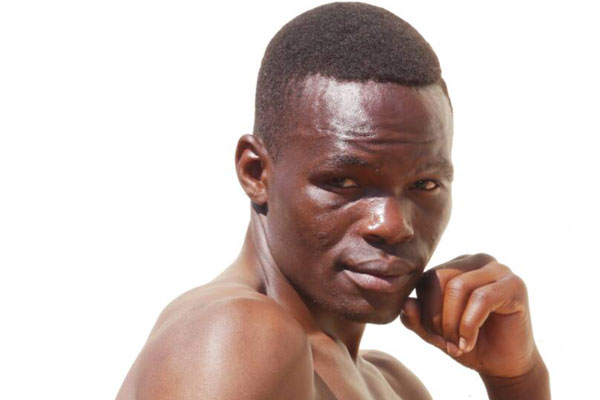
There is good news in Zimbabwean boxing, where the sport has risen from the dead and is now attracting bigger and bigger crowds after 15 years of decline.
insidesport with MICHAEL KARIATI

Over the past 15 years boxing in the country has suffered due to a combination of factors, one of which was the non-availability of regular fights which forced people to lose interest in the sport altogether.
For example, Charles Manyuchi’s home-coming fight against Colombian Augustin Ferria in August 2016 — bankrolled by Zambia’s Oriental Boxing Promotions — was the only tournament for that year, and also the only tournament to be staged in Zimbabwe in three years.
However, the good times have rolled back, thanks to the Kolakoda Friday Fight Nights which have opened up new horizons for Zimbabwean boxers, and excitement for Zimbabwean boxing lovers after 15 years of suffering.
So far, in 2018, three tournaments —with large crowd attendances — have been held at the HICC and the Glamis Arena, not mentioning those which were spread to Warren Park and Gweru with the fourth big one earmarked for August 31, where a number of national titles would be at stake.
These have brought back memories of the good old days of the 80s and 90s when boxing used to compete with football in attracting huge crowds at big venues like Rufaro Stadium, Mbare Netball Complex, Glamis Arena as well as indoor places like Club Saratoga.
What is heartening is that the promoters have also struck a deal with the World Boxing Federation,which effectively means that good Zimbabwean boxers will find it easier to challenge for the WBF-Africa titles and ultimately the WBF-intercontinental titles.
- Chamisa under fire over US$120K donation
- Mavhunga puts DeMbare into Chibuku quarterfinals
- Pension funds bet on Cabora Bassa oilfields
- Councils defy govt fire tender directive
Keep Reading
For the likes of Chamunorwa Gonorenda, Peter Pambeni, Phillip Musariri, Nicola Mutonhora, Chiedza Hombakomba and Revai Madondo, the fruits could come even earlier as they stand a chance of a crack at WBF Africa titles with a good show at the August 31 extravaganza, which will be shown on TV across Africa.
This is the same route that Manyuchi took — although with a different organisation — on his way to becoming the World Boxing Council’s Africa champion and later the WBC International silver belt title holder.
So far, Zimbabwe is on the right path and it would be unfair to ignore the sterling efforts also being made by the Richard Hondo-led Zimbabwe National BoxingControl Board to ensure that boxing gets back to its feet after more than a decade on its knees.
Not forgetting the efforts of renowned promoter Stalin Mau Mau, who has been a regular feature at most tournaments to give support, not only to the boxers themselves, but also to those bankrolling the contests.
The ultimate destination for Zimbabwe, however, should be to compete or get better than Zambia and Namibia, who have made a lot of inroads in African and world boxing.
Zambia have an Africa Boxing Union flyweight title holder in the form of Alfred Muwowo, and a WBC welterweight International champion, Lolita Muzeya, and also gave birth to WBC bantamweight gold champion Catherine Phiri.
The same situation also obtains in Namibia where Sunshine Boxing Promotions, run by Nestor Tobias, produced five world champions who included Harry Simon, Paulus “The Hitman” Moses and Paulus “The Rock” Ambunda.
However, Kolakoda cannot do it alone. There is need for other promoters to come on board and for the corporate world to also come on hand to make sure that the excitement and activity of 2018 does not become a one-year wonder.
The promoters should also not use shortcuts to get Zimbabwean boxers to crack international titles before they are ready. Just like the days of the late great Langton “Schoolboy” Tinago, Proud “Kilimanjaro” Chinembiri and Stix McLoud, the boxers should be given as many local and regional fights as possible to prepare them fully, otherwise they could follow the route of the Chevrons and the Sables who are being hit left, right, and centre. The Zimbabwe National Boxing Control Board should also update the national rankings which were last updated in 2002 as up to now, boxers who have long retired or have passed on, still find themselves on the national ratings.
This has made promoters’ match-making difficult as they do not have the performance record of the boxers from the different weight divisions.
Whoever becomes the new sport minister should also look at sporting or boxing background first when he appoints a new board — that is if he decides that the one standing must go.
However, so far, so good for Zimbabwean boxing, but the nation will only get really excited when Zimbabwe produces an Africa title holder or a world champion. What is on the plate right now is just the starting point.
For your comments, views and suggestions, email [email protected] or WhatsApp on 0773 266 779.











